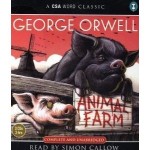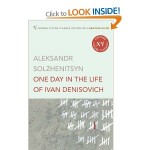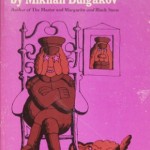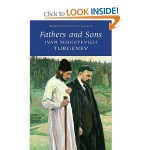One of the great boons to this course is that we can enrich and deepen our understanding through some remarkable literature. I have picked four texts here that have a lot going for them. They are thought provoking, centred on our period of study, and not too long. There are copies in the school library or you can borrow by my editions by request.
 Perhaps the best place to start is with Animal Farm. George Orwell’s masterpiece Animal Farm. Please find below an Amazon review and a link…
Perhaps the best place to start is with Animal Farm. George Orwell’s masterpiece Animal Farm. Please find below an Amazon review and a link…
“Since its publication in 1946 Animal Farm has been hailed as one of the most influential pieces of fictional political writing in the twentieth century, an accolade that the novel thoroughly deserves. The first time I read it was as an A Level student studying the Russian Revolution. I was amazed at how simply but effectively Orwell delivered such a powerful message. In a career spanning many brilliant works, including Nineteen Eighty-Four, The Road To Wigan Pier and Coming Up For Air, this is quite simply one of his best. The book centres around the themes of revolution and how communist ideals of justice and equality give way to totalitarianism. Using a farm and its inhabitants to represent the places and main characters of the time, it tells the story of the Russian Bolshevik revolution. Orwell explores the evils of power, money, propaganda and terror to bring us a shocking tale of greed and tyranny.
The story revolves around a group of mistreated farm animals who fight for control of their home. The farm’s prize pig, Old Major, insights revolution when he tells all the animals of a dream he had about how “the Earth will be when Man has vanished.” The animals confront their exploitative human owners and force them out of Manor Farm. They then set up their own society renaming it “Animal Farm”. A new set of laws they are to abide by is then decided on and these are written as seven commandments, the most important being that “all animals are equal.” Unfortunately this commandment is the first to go when Old Major dies and the intelligent Pigs take over. The new leaders succumb to the temptations that power provides and become dictators of the farm. What ensues is a vivid description of how power corrupts and leaves the animals in no better a position then when they were under the rule of the humans.
Orwell paints a masterfully bleak picture of Soviet Communism and the fat cats (or pigs in this case) of the twentieth century. One amazing thing about the novel is that we can easily relate things that happen in Animal Farm to events that have occurred since the book was published. The air of prophecy in Orwell’s writing is eerily apparent. This however, is by no means the story’s only plus. As well as the stark political message we also get a completely engrossing story. The satire is compelling but at the same time it is quite easy to feel compassion for some of the characters in Animal Farm. The vast majority of people who have read the book cannot help but feel sympathy and respect for Boxer the work-hoarse as he strives to do the best he can for his fellow citizens. Boxer is not used in Orwell’s novel to represent a single person, but to represent a group of people, in this case the tireless workers caught in a totalitarian regime. The animals in the book and their main characteristics are often used in this way. For example the growling dogs are used to represent some sort of secret police that would terrorise the people. Orwell has said that he often wrote because there was some lie or injustice he wanted to expose. This is the main reason he used the literary technique of allegory in Animal Farm. It works because it allows Orwell to bring our attention to those events during the Russian revolution that concerned him the most. His feelings on Stalin’s cruel regime are not hidden, suggested, or argued about, they are there for all to see. Orwell is quoted as saying that he had tried to write “less picturesquely and more exactly” and this is precisely the case. He uses a distinctively straightforward and simple style to create a very linear tale. This makes everything seem almost light, but at the same time it is effective and powerful. The end result of Orwell’s prose style is a brilliant piece of bitter political satire, crossed with remarkably accurate historical allegory, that still manages to remain serious and deliver a telling reminder of how revolution went wrong. There is no wonder this novel is considered world wide to be a real classic of the twentieth century. True appreciation of the book does come with an understanding of the Russian revolution but those without can still interpret its message, which continues to be relevant to this day. I cannot recommend this book enough, I thoroughly enjoyed every page.”
 A second book that is well worth reading is Aleksandr Solzhenitsyn’s “One day in the life of Ivan Denisovich. This extraordinary book describes the horrors of life in Stalin’s Gulag system. Read the Amazon review below. Underneath that is Solzhenitsyn’s obituary from the Economist in 2008. It is telling perhaps that by the end he was as disillusioned with the West as with Communism.
A second book that is well worth reading is Aleksandr Solzhenitsyn’s “One day in the life of Ivan Denisovich. This extraordinary book describes the horrors of life in Stalin’s Gulag system. Read the Amazon review below. Underneath that is Solzhenitsyn’s obituary from the Economist in 2008. It is telling perhaps that by the end he was as disillusioned with the West as with Communism.
“Now that Alexander Solzhenitsyn is remembered as a formidable opponent of Communism and the Soviet system, it is strange to think that “One Day in the Life of Ivan Denisovich”, which deals with the controversial subject of life in a Soviet labour camp, was first published (in November 1962) in an official literary magazine with the blessing of the Soviet authorities. Indeed, its publication is said to have been authorised by Nikita Khrushchev himself. Khrushchev’s motives were, of course, self-interested. He saw the book as a useful tool in his campaign of de-Stalinisation, a campaign which served to justify his own rule and his disposing of rivals such as Lavrentiy Beria and Viktor Abakumov who had been more closely associated with Stalinist repression. (Khrushchev’s own complicity in Stalin’s crimes was, of course, airbrushed out of history). Nevertheless, the publication of the book was an unprecedented event; never before had so critical an account of Soviet rule, even Stalinist rule, been openly distributed.
The action of the book takes place on a single day in January 1951, a day seen through the eyes of the central character, Ivan Denisovich Shukhov, who is in the eighth year of a ten-year sentence. Shukhov’s sentence was imposed after, as a soldier in World War II, he was captured by the Germans. Although he managed to escape and make his way back though the Soviet lines, he was accused of being a spy. The novel is autobiographical and reflects Solzhenitsyn’s own experiences in the gulags after he was imprisoned for writing derogatory comments about Stalin in a private letter.
Shukhov is innocent of the accusations of espionage, but this does not really matter to the Soviet authorities as the purpose of the labour camps was less to punish the guilty than to deter the populace from uttering any criticisms of the regime and to act as a source of slave labour for Stalin’s grandiose construction projects. The prisoners (known as “zeks” in Russian) are organised into squads of around 20 men each. (Shukhov’s squad is the 104th). As an incentive to work, the zeks are fed according to how much work their squad accomplished the previous day, forcing them to work as hard as possible to survive. Any slackers will be pressurised into working by their fellow squad members.
On the day in question, the 104th are set to work building a power station, even though it is bitterly cold and the mortar used for bricklaying will freeze if not applied quickly enough. (Regulations state that the men will only be excused work if the temperature drops below -41°C). We get to know a number of Shukhov’s fellow squad members, including the foreman Tyurin, respected by his men for his fairness and his skill in bargaining with the camp authorities, the deeply religious Alyosha who is supported by his faith, the shameless scrounger Fetyukov and Buinovsky, a former naval captain (imprisoned for accepting a gift from a British colleague) who finds it difficult to adapt to the camp after his previously privileged life. We also learn of the hardships faced by the zeks- the harshness of the weather, their inadequate clothing and equally inadequate food, consisting (unless they are lucky enough to receive parcels from home) of black bread, thin porridge and watery cabbage soup. They also face bullying from the guards, who are obsessive about enforcing petty regulations, although Solzhenitsyn does remind us that the guards are human too. Their attitude stems mainly from their own resentment at the hard conditions and at the harsh discipline imposed upon them. Should any of the zeks succeed in escaping, those guards deemed responsible will be forced to take their places in the camp.
The book ends with Ivan reflecting that he has had a good day. He hasn’t fallen ill; he hasn’t been sent to the punishment cells; he managed to obtain an extra bowl of porridge at dinner; he found a broken hacksaw blade which could serve him as a knife; his friend Tsezar received a parcel and shared some of its contents with him. “A day without a dark cloud. Almost a happy day”. This passage is, of course, deeply ironic. If this day, with all its hardships, counts as a good day in Ivan’s life, we are left to reflect on what a bad day must be like.
Even in the West this book was an influential one, forcing many people to reassess their view of Soviet Communism; to Russians in the sixties, trying to come to terms with the legacy of Stalinism it must have come as a shattering revelation. Solzhenitsyn never explicitly denounces the Communist system in the book; had he done so, the book would doubtless have been banned. He simply provides a description of what life in the gulag was like, but in the long run his stark, spare prose was to prove as damaging to the system as any amount of political rhetoric. It is hardly surprising that after Khrushchev’s fall his successor Leonid Brezhnev did all he could to muzzle Solzhenitsyn, eventually expelling him from the Soviet Union.”
Aleksandr Solzhenitsyn’s obituary in the Economist
 The third book to recommend to you comes from Mr Podesta. A Dog’s Heart by Mikhail Bulgakov. It is said by some to be the inspiration for Orwell’s Animal Farm. Again, there is an Amazon review and link below.
The third book to recommend to you comes from Mr Podesta. A Dog’s Heart by Mikhail Bulgakov. It is said by some to be the inspiration for Orwell’s Animal Farm. Again, there is an Amazon review and link below.
“Completed by Bulgakov in 1925, this short story remained unpublished in the Soviet Union for almost sixty years. When it finally appeared on Soviet bookshelves in 1987 it became an instant hit and is arguably seen as on of the author’s most hard-hitting novels. Not for nothing did Stalin’s censors deem this book too sensitive for publication.
‘The Heart of a Dog’ is the absurd story of a stray dog, who is taken in from the streets by a well-known, well-off Professor named Philip Philipovich Preobrazhensky in order that he may attempt a groundbreaking operation; the transplantation of human testicles and pituitary gland into the dog. The operation is successful; however the Professor has produced an intolerable being which resembles a human of revolutionary sentiment with a dog-like penchant for chasing cats.
The story is enjoyable in and of itself, and one must congratulate Bulgakov for his imagination and inventiveness – forced upon him by the oppressive intellectual climate of his time – in thinking up such a tale. In addition, It is very easy to read and interesting for its portrayal of the atmosphere in a bourgeois household in 1920s Moscow. There are also a number of other levels to the book and various interpretations of what Bulgakov’s true message was. It is worth noting, for example, that Professor Preobrazhensky’s name is a derivative of the Slavic word for ‘transfiguration’, and the book is ostensibly about failed attempts to improve upon human nature. Thus, Bulgakov may be seen to be either ridiculing Soviet attempts to create communist supermen or attacking science’s interference with nature. Finally, another interpretation of the story sees it as a parable of the 1917 Revolution in which things were set into motion which became almost uncontrollable.
‘The Heart of a Dog’ is a classic story of great intellectual value, which deserves to be read and which is immensely enjoyable for its absurdity, humour, and political message(s).”
 Finally you might like to read something that reflects the inequalities and rigidity of Tsarist society. Fathers and Sons is an 1862 novel Ivan Turgenev.
Finally you might like to read something that reflects the inequalities and rigidity of Tsarist society. Fathers and Sons is an 1862 novel Ivan Turgenev.
“In this book, arguably representing the zenith of Turgenev’s writing ability, a fascinating insight into Russian life is portrayed. Admittedly not the easiest of reads, there are still immense benefits to be gained from assessing all the points that Turgenev raises. The plot is essentially one of conflict and of ideas on a variety of levels. The broader context is one of a changing Russia. At a crucial time in its history, with ideas of westernisation, liberalism and serf emancipation sweeping the country, the internal dilemmas Russia faced are manifested in the books main characters. Bazarov, an obtuse and obstinate young man meets the father and uncle of Arkady, a son returning home to the family estate for the first time after graduating from university. The ensuing relationships are fascinating. Bazarov, a nihilist, inevitably finds conflict with Arkady’s uncle, a traditional militaristic Russian and also leads both Arkady and his father Nicholas to question themselves and their beliefs and how as middling nobles, they should react to this and place themselves within the great debate. Furthermore, the relationships between Nicholas and the peasants – how they react to emancipation and how he deals with them on a more personal level – provides great entertainment within the story. An impressive piece of Russian literature which offers an interesting alternative to works by Tolstoy or Dostoyevsky, Fathers and Sons provides a story of people, and of relationships in a crucial period of Russia’s history prior to the revolution and many readers will note the underlying themes of the book as telling us as much about Imperial society as about Turgenev’s storytelling technique. “
Below is a review from Mrs Canning of a book that I have never read – Sashenka by Simon Sebag Montefiore
 I thoroughly recommend this book. As well as being an enjoyable read, it can give you a feel for Russia at three vital points in the course. The story starts with beautiful young Sashenka, a school girl from a wealthy background, and her first experience of the Tsar’s secret police as part of the revolutionary underground. It gives you a flavour of the secrecy and conspiracy of the Bolsheviks, when they were only one of several opposition groups. The second part is Sashenka’s life under Stalin. She is now the perfect Soviet wife married to a prominent party member. Having lived through the terror, watching as many party members were accused and removed, she is happy and prosperous; still an ardent believer in Communism and faithful to Stalin. The third part of the story sees Russia in the 1990s and a young researcher struggling to overcome the obstacles of research into Stalinist Russia to get details of Sashenka’s fate. An engrossing read, even without the fascinating setting and useful relevance.
I thoroughly recommend this book. As well as being an enjoyable read, it can give you a feel for Russia at three vital points in the course. The story starts with beautiful young Sashenka, a school girl from a wealthy background, and her first experience of the Tsar’s secret police as part of the revolutionary underground. It gives you a flavour of the secrecy and conspiracy of the Bolsheviks, when they were only one of several opposition groups. The second part is Sashenka’s life under Stalin. She is now the perfect Soviet wife married to a prominent party member. Having lived through the terror, watching as many party members were accused and removed, she is happy and prosperous; still an ardent believer in Communism and faithful to Stalin. The third part of the story sees Russia in the 1990s and a young researcher struggling to overcome the obstacles of research into Stalinist Russia to get details of Sashenka’s fate. An engrossing read, even without the fascinating setting and useful relevance.
As it is written by a well known Russian historian, author of Stalin: Court of the Red Tsar, and Young Stalin, we can expect many of the details to be accurate, but it would be great to see what you think. If you read it, did you enjoy it? Did you find some parts a useful insight into the course? And, are there any parts or details that you would question historically?



Sashenka was a really helpful book! It not only gives you an insight into what life was really like for the Russians – the spies, the deceit, but it actually helps you to understand more about the Bolsheviks and communism. 🙂 I recommend!
I found that Animal Farm is a great representation of the struggle that the Russian population had to go through throughout the reign of Stalin. Orwell also puts across well how much of a control freak Stalin was by the way in which he tries to run the farm exacly how he wants
Another book by Mikhail Bulgakov which is very good is ‘The Master and Margarita’ – probably not quite as relevant to the course as those listed above but a great read all the same
Found a copy of Animal Farm, will have a read soon
I found a copy of “One day in the life of Ivan Denisovich” at home which belongs to my brother which has an inscription in it from you (Mr Kydd). I am going to start reading it soon.
The key question is had Tom read it ?
Ordered a couple of books of Amazon so will have a read of them
I have purchased Animal Farm, and I am looking forward to reading it during the summer 🙂